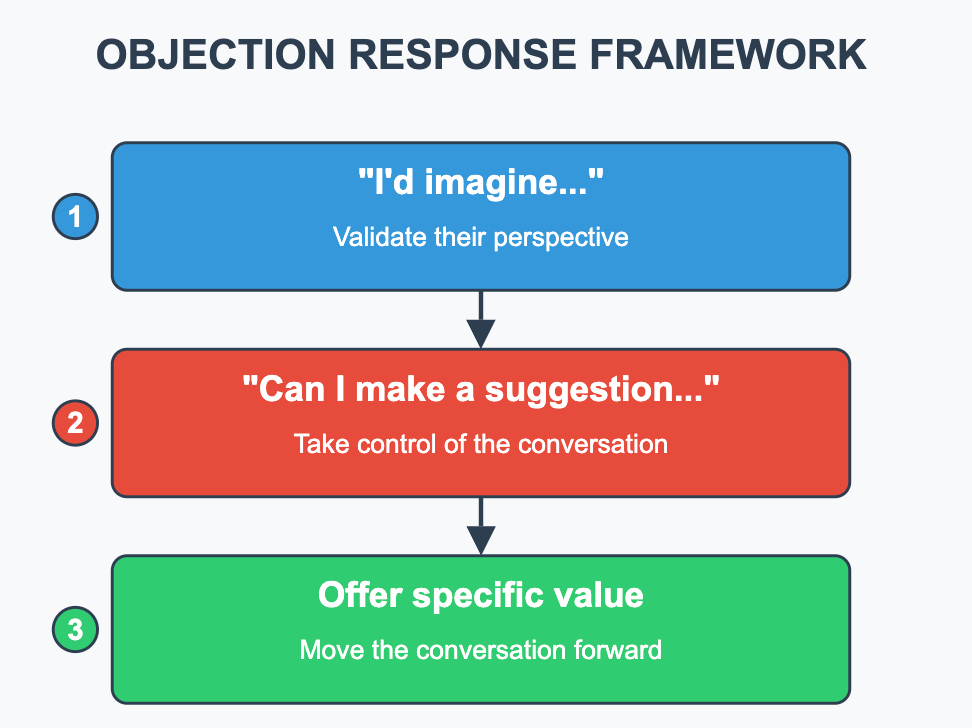
Rejections vs. Objections
How elite reps get the meeting anyway
Read Time = 3 minutes

Your prospect says: "we don't have budget for this"
Average rep: schedules follow-up in CRM
Good rep: asks about timelines/renewal
Elite rep: gets the meeting anyway
An objection is a roadblock. A rejection is a dead end.
Most reps confuse the two.
In this post, I'll break down how to recognize true rejections, pressure test pushback and share a framework for turning objections into opportunities.
Let's dive in.
1. Understanding the Difference
When you make 100+ calls a week, you'll hear plenty of "noes."
But not all of them mean the same thing.
Here are a few examples:
Objections (roadblocks):
"We need to get buy-in from other stakeholders before moving forward"
"We already have a process for that'‘
"Your solution is too expensive"
Rejections (dead ends):
"This isn't a priority for us and won't be for the foreseeable future."
"Our company was just acquired and all new purchases are frozen”
"I'm not the decision-maker and have no influence on this purchase"
2. The Pressure Test
Context matters enormously when interpreting pushback.
What sounds like rejection might be valuable intel for account based outreach:
Account-Based Considerations:
When a lower-level contact says "I’m not interested," ask yourself:
is this the right person to evaluate your solution?
could their objection provide insights for conversations with decision-makers?
A staff accountant saying "not interested" differs from a CFO saying the same.
The true test isn't whether one person objects - it's whether you've reached someone with the authority to evaluate your solution.

3. Objection Handling Framework
Typically when navigating objections it feels like you’re stuck on defense.
The buyer is asking questions and you have to respond.
The best way to handle objections is to get ahead of them.
Here’s a framework I like to use:

Example 1: I’m not interested
"I'd imagine you already have a process. Can I make a suggestion... what if we give you a preview of how we can help with XYZ and you tell us if it's even worth following up in the future?"
Remember, regardless of whether you’re dealing with objections or rejections.
Every interaction is an opportunity to move the ball forward.
So before you end your next conversation too quickly:
Understand the current state.
Identify the decision maker.
Ask for a referral.
Until next Thursday,
TSG
P.S. I reply to all emails.
